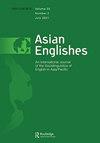Reconsidering Englishization: the Japanese government’s Top Global University Project
IF 1.8
Q1 LINGUISTICS
引用次数: 3
Abstract
ABSTRACT This article begins with a brief historical overview of Japan’s education reforms, focusing particularly on language policy in higher education. In the Meiji era (1870s), lively discussions took place regarding making English the national language of Japan and providing education through English-medium instruction (EMI). Ultimately, Japan avoided both making English the national language and Englishization of higher education. However, since the Japanese government launched the Top Global University Project in 2014, which aims to promote the globalization of public and private universities and recruit foreign students from across the globe, Englishization has been accelerating. Upper-tier universities designated as Top Global Universities are particularly enthusiastic about increasing the scope of EMI across disciplines. To this end, more and more foreign instructors have been hired, and these seem to be replacing Japanese faculty in those universities. This educational setting is reminiscent of that prevailing during the early Meiji era. To reconsider the current situation in Japan’s higher education, the article discusses the Nordic language policy that was set forth to address the threat of the dominance of English. It suggests the limited use of English in Japan’s higher education and ends with a review of the literature on the fetishism of English.反思英语化:日本政府的顶尖全球大学项目
本文首先简要介绍了日本教育改革的历史概况,重点介绍了高等教育中的语言政策。在明治时代(19世纪70年代),关于将英语作为日本的国家语言和通过英语教学(EMI)提供教育的热烈讨论。最终,日本避免了将英语作为国家语言和高等教育的英语化。但是,日本政府在2014年启动了旨在推进公立和私立大学全球化、招收世界各地留学生的“全球顶尖大学计划”(Top Global University Project)后,英语化的步伐开始加快。被评为全球顶尖大学的一流大学尤其热衷于增加跨学科的EMI范围。为此,越来越多的外国教师被聘用,这些人似乎正在取代这些大学的日本教师。这种教育环境让人想起明治初期盛行的教育环境。为了重新考虑日本高等教育的现状,本文讨论了为解决英语主导地位的威胁而提出的北欧语言政策。本文提出了日本高等教育中英语使用有限的问题,最后对英语拜物教的文献进行了回顾。
本文章由计算机程序翻译,如有差异,请以英文原文为准。
求助全文
约1分钟内获得全文
求助全文
来源期刊

Asian Englishes
LINGUISTICS-
CiteScore
3.30
自引率
18.80%
发文量
34
期刊介绍:
Asian Englishes seeks to publish the best papers dealing with various issues involved in the diffusion of English and its diversification in Asia and the Pacific. It aims to promote better understanding of the nature of English and the role which it plays in the linguistic repertoire of those who live and work in Asia, both intra- and internationally, and in spoken and written form. The journal particularly highlights such themes as: 1.Varieties of English in Asia – Including their divergence & convergence (phonetics, phonology, prosody, vocabulary, syntax, semantics, pragmatics, discourse, rhetoric) 2.ELT and English proficiency testing vis-a-vis English variation and international use of English 3.English as a language of international and intercultural communication in Asia 4.English-language journalism, literature, and other media 5.Social roles and functions of English in Asian countries 6.Multicultural English and mutual intelligibility 7.Language policy and language planning 8.Impact of English on other Asian languages 9.English-knowing bi- and multilingualism 10.English-medium education 11.Relevance of new paradigms, such as English as a Lingua Franca, to Asian contexts. 12.The depth of penetration, use in various domains, and future direction of English in (the development of) Asian Societies.
 求助内容:
求助内容: 应助结果提醒方式:
应助结果提醒方式:


